|
By Urzula Glienecke The God we know through Jesus is a God of new beginnings. God lifts up the suffering and the outcast. The broken find new hope and new life – even a tree that has fallen can begin new growth – even if the shape and the direction are different. One of the greatest promises is the coming of God’s kingdom – we are part of that promise. Protecting and lifting up the lowly, the suffering, the poor, the oppressed. What can we do to pass the grace we have received on to others who need it now? Ever unfolding promises of God can be found – in the Bible stories, narratives in the prophetic word, in coming of Jesus, in God’s Kingdom and God’s future. Jurgen Moltmann expresses theological hope as 'expectation of a good future which rests on God’s promise'. We are God’s feet, hands, eyes in this world. We are part of that promise – of the foretaste of the Kingdom which is already here and now, but at the same time not yet. If we open our hearts and homes to people who need it, when we work to end poverty, when we accept and welcome those who are different from us, think differently, believe differently, live differently – we are part of God’s promise. - UG Urzula Glienecke, PhD, is a Latvian theologian, artist and activist living in Scotland. Urzula is a Member of the Iona Community. She is passionate about social justice, the environment and empowering people at the grassroots level.
Urzula's other work on Foreshadow: A Foretaste of the Kingdom (Non-fiction, April 2021) Lifelines, (Art, May 2021)
0 Comments
'The Road through Chaos' by Alfred Noyes I. There is one road, one only, to the Light; A narrow way, but Freedom walks therein; A strait firm road through Chaos and old Night, And all these wandering Jack-o'-Lents of Sin. It is the road of Law, where Pilate stays To hear, at last, the answer to his cry; And mighty sages, groping through their maze Of eager questions, hear a child reply. "Truth? What is Truth? Come, look upon my tables. Begin at your beginnings once again. Twice one is two!" If all the rest be fables, There's one poor glimpse of Truth to keep you sane. For truth, at first, is clean accord with fact, Whether in line or thought, or word, or act. II. Then, by those first, those clean, precise, accords, Build to the Lord your temples and your song; The curves of beauty, music's wedded chords Resolving into heaven all hate and wrong. Let harmonies of colour marry and follow, And breaking waves in a rhythmic dance ensue; And all your thought fly free as the wings of the swallow, Whose arrowy curves obey their measure, too. Then shall the marching stars and tides befriend you, And your own heart, and the world's heart, pulse in rhyme; Then shall the mob of the passions that would rend you Crown you their Captain and march on in time. So shall you repossess your struggling soul, Conquer your world, and find the eternal goal. Eiler Rasmussen Eilersen (1827–1912) was a Danish landscape painter.
Alfred Noyes (1880–1958) was an English poet. After clicking 'Play', please wait a few moments for the podcast to load. You can also listen on Spotify, Apple, Google, Podomatic, Player FM and Deezer. Listen to other Forecasts here. Josh Seligman and Jon Seligman discuss singer/songwriter Jon Foreman's newest album, Departures. Going through the songs one by one, they especially focus on the album's theme of seeking Heaven on earth and the tension between despair and hope. Links: - Jon Foreman's website - Video of Switchfoot visiting Jon Seligman's music class Below are excerpts from today's Forecast. This transcript has been lightly edited for clarity and concision. 'Jesus, I Have My Doubts' Jon: In both the lyrics and also the music, there is a rawness and an emptiness...There is a lot of empty space. I would have loved for him to have added more empty space. But the silence of God is something I feel that a lot of people have experienced the past couple of years, and this definitely hits on that note, for sure. 'Thanks Be to God' Josh: He's experienced victory, or he's at least acknowledging that victory will come. But he's also in different points in time. In the verses, he's describing his challenges and singing as though he's in the fight, but in the chorus, he's singing as though he's already attained victory. Jon: Yes, I think you're entirely on point in terms of the chorus is not in the present tense. And you don't have the sense of victory in the way the music is constructed. You don't have the horns blowing, you don't have the archetypes of what would be a deliverance motif. It is very much an individual in the fight but the recognition that God has delivered in the past, and it's a hope...of deliverance based on the faithfulness of who God has been and who he believes God will be. So right now, in this fight that he is in, he recognises that God has delivered him, even though he doesn't feel delivered. It's this tension of recognising, 'This is who I believe, this is where I'm at, but I also recognise this being, God, who I am also side by side next to, I recognise that God will still save me.'... Josh: He's alluding to St Paul in Romans 7, who says 'What a wretched man I am! Who will rescue me from this body that is subject to death? Thanks be to God, who delivers me through Jesus Christ our Lord.' So, thinking about it on another level, it's as if the chorus is the Church Triumphant singing the song of victory, and the verse is...us...recognising our limitations, our failures...and that reminds me of another song later on...'Love Is the Rebel Song.' He has that phrase, 'Let us sing tomorrow's song.' And I think that's another expression of this. 'Thanks be to God who delivers me' -- that's tomorrow's song. That's the song that, by faith, we believe that we will be singing tomorrow, tomorrow being the age to come, the new creation. That's the song that Church Triumphant is already singing. He's hearing tomorrow's song being sung today. 'Love is the Rebel Song' Jon: The hope is in our action, almost. Maybe not in our action, because as you mentioned, hope is towards 'Thanks be to God.' But it's not a despondency of letting go. We still have agency in this as well. We still have a part in this. It is what we do from here on to push for that hope as well. Josh: Yeah, and I think that's one of the strengths of this image of a fight, because in a fight, you can't just sit on the sidelines. You're involved in it...entering the kingdom of God is not just something we do passively, or we wait around for it to come. It's something we need to seize and take by force. Not in the sense of physical violence, but in the sense that we need to give it everything we've got and commit ourselves fully to seeking the kingdom of God, that God's will is done on earth as it is in heaven. It's that tension of waiting but also seeking and seizing it as much as we can through how we live our lives, how we love God, how we love our neighbour... Jon: You're right, we are given a task, and it's not just something to be given passively. And as we see with the frustrations of this world, there's a lot of work to be done, and to expect that God's kingdom is going to happen just by 'We'll watch on the sidelines and let God take care of it all'...that's true, but I think that removes what our goal is, what our job is. Our job is to be active as well. We are co-creators with God as well, so we need to make sure that, what God has given us, we...do properly. We aren't just someone who buries our talent in the sand, but we actually do something with it. The question goes, 'OK, what is our task?' That's for another podcast. But specifically in this song for sure, whatever it be, let it be of love. And love is such a nebulous term, so it's hard to know, but I think the hate that we hear is definitely not what it is at least. Jon Seligman is an elementary school music teacher in Chula Vista, California. He holds a Bachelors in Music Composition and an MA in Teaching from Point Loma Nazarene University, California.
Josh Seligman is the founding editor of Foreshadow and a co-host of its podcast, Forecast. 'Uphill' by Christina Rosetti Does the road wind up-hill all the way? Yes, to the very end. Will the day’s journey take the whole long day? From morn to night, my friend. But is there for the night a resting-place? A roof for when the slow dark hours begin. May not the darkness hide it from my face? You cannot miss that inn. Shall I meet other wayfarers at night? Those who have gone before. Then must I knock, or call when just in sight? They will not keep you standing at that door. Shall I find comfort, travel-sore and weak? Of labour you shall find the sum. Will there be beds for me and all who seek? Yea, beds for all who come. Christina Rosetti (1830–1894) was an English poet.
By Anna Osmaston The smells of Spring are in the air; The time when beasts come from their lair. I must go out too – anywhere - the March wind racing through my hair. I’ll climb the hill ‘till I reach the sky, Then on the springing turf I’ll lie And listen to the peewits cry In joyous freedom wheeling by. The wind-tossed cloudlets hurry past Each trying to outrun the last, At me reproachful glances cast As through this hustle, I stand fast. Yes, I must up and hurry too – Down to the woods where pigeons coo Where birds and beasts their chosen woo Life has begun! There’s lots to do. Down to the stream where the old punt lies, Hide ‘neath the willows, see fishes rise, The flash of colour where the kingfisher flies, And water rat peeping with beady eyes. When I’ve left the punt in the reeds, which way? I know – to the meadow where little lambs play, And I’ll prance and frisk as well as they, then home at the end of a perfect day. Anna Osmaston (1922–2021) was a WWII veteran and a beloved wife, mother and grandmother.
'Carefree' was written at Anna's home (Pensbury House, Shaftesbury, Dorset) in November 1941 when she had a few days’ leave from the Army. 'The Bee in Church' by Alfred Noyes The nestling church at Ovingdean Was fragrant as a hive in May; And there was nobody within To preach, or praise, or pray. The sunlight slanted through the door, And through the panes of painted glass, When I stole in, alone, once more To feel the ages pass. Then, through the dim grey hush there droned An echoing plain-song on the air, As if some ghostly priest intoned An old Gregorian there. Saint Chrysostom could never lend More honey to the heavenly Spring Than seemed to murmur and ascend On that invisible wing. So small he was, I scarce could see My girdled brown hierophant; But only a Franciscan bee In such a bass could chant. His golden Latin rolled and boomed. It swayed the altar flowers anew, Till all that hive of worship bloomed With dreams of sun and dew. Ah, sweet Franciscan of the May, Dear chaplain of the fairy queen, You sent a singing heart away That day, from Ovingdean. Arthur Gilbert (1819–1895) was an English landscape painter.
Alfred Noyes (1880–1958) was an English poet. After clicking 'Play', please wait a few moments for the podcast to load. You can also listen on Spotify, Apple, Google, Podomatic, Player FM and Deezer. Listen to other Forecasts here. Anaesthetist and intensive care doctor Matt Jackson shares insights from his medical work and his Christian faith. Whereas he once thought a doctor's role was to heal people, his experience and reflections have taught him that instead, his role is to care for people in difficult situations. He describes moments of fulfilment supporting his patients and their families in COVID-19 times. Host: Josh Seligman Below are excerpts from today's Forecast. This transcript has been lightly edited for clarity and concision. Perspective As with becoming a doctor and as with my conversion, I suppose there's no real Damascus moment of 'I had a patient die, and then suddenly I had this big revelation', but the suffering that I see at work can sometimes be a real stark reminder of how blessed I am in my own life. Sometimes seeing the struggles and difficult situations people come from can be a real reminder of [how] my own life's really good and really blessed. I know it's quite a trite point, but I certainly get to the point where I sweat the small stuff, and I'll be irritated or thinking or frustrated about a particular thing and then suddenly realise, that's not important, that's just the small stuff. Seeing so many people's lives, particularly at the point where it's hitting crisis, as in my own job, is a good mirror to understand some of the things that are important in life and some of the things that are just sweating the small stuff. Not just solving problems I'm a work in progress. Sometimes I look at myself and know that I'm not the most caring of people. I think the job that I do requires me quite often to look at difficult situations that people are in and come up with solutions. One of the mentally protected ways about coming up with those solutions is kind of to dehumanise a problem or just to see it as a problem that needs solving. It's useful to have regular reminders. When you sit down with a family who are upset, that is a regular reminder that actually, what I'm doing in my job isn't just solving problems, isn't just applying academic knowledge. It's dealing with fellow human beings. It's dealing with other people who are children of God, and I guess in that sense, I'm very much a work in progress. Those points where I am reminded are humbling and are important, really. The role of the physician is not to heal, but to care Ten [to] fifteen years ago, I was having this slight dilemma: 'What is it that I do as a doctor? What's the point of it? I kind of know what society expects of me. I know what my contract expects of me. But on a more philosophical level, what is it that I'm supposed to be doing?' There's very few diseases that I see where I can heal someone. Quite often, the treatments that I have will prolong life. They can improve the quality of life. There's always the risk of side-effects, but there's very few treatments that we have available that are actually ever going to fully reverse and get rid of a problem. I guess naively, I'd always thought that if I'm going to be doctor, then a doctor is a healer, but actually, that's really not the case...I'd always wanted to help people and make people better. And as I progressed through my career, [I had] just the recognition that none of the treatments we have available actually make people truly better. They don't bring about complete transformation of the disease process such that it's gone. We can prolong life, we can improve life, we can improve the quality of life, but we can never completely click our fingers and completely evaporate a problem away. As I was growing up and developing and maturing, it was part of the maturing process just to understand that actually, this concept of medicine being healing or completely making people better isn't quite true. Then the question is, well, what is it that I actually do? What is it that I'm actually able to do? Ultimately, it falls down to, yes, there are lots of technical things that I've done, that I can do. I've spent a lot of time being trained to do these things. But ultimately, if you peel it back and back, Stanley Hauerwas has written about this really well: ultimately, what I'm doing is, I'm caring for people in difficult situations. And I suppose another way of looking at it is, if as a doctor my job is to make people better, when my patients die, am I a failure? Is that a failing?...If you've got this paradigm that doctors make people better, doctors heal, then ultimately yes, you are failure. But some of the most rewarding experiences I actually have professionally are when patients do die and to have been able to provide a comfortable death, enable people they love to be around them, to have enabled them to have that time to acknowledge that death's coming and be able to have those conversations that they want with their loved ones at the end of life. To be part of the team that's facilitating that, that feels good. That feels the right thing to do. This suggestion that the role of the doctor -- it's not really doctor, it's any healthcare worker, and perhaps you might extend it to 'Everyone's job is to care' -- but particularly thinking about the healthcare realm: actually, our job is to care for people in these difficult situations. Glimpses Particularly with COVID-19 around, in a lot of our hospitals, visiting is very difficult and really minimis[ed]. Facilitating visits to patients and seeing the benefit that that has, having loved ones around, is particularly resonant at the moment with me. Because certainly where I work, visiting is really limited to just people who are coming to the end of their life. And yet just enabling FaceTime, the WhatsApp video calls with patients -- someone who's been in hospital for a while, their mind's in a position where they've started to question whether they're ever going to get better, fully get out of hospital -- and then just to see the spark that suddenly that call, seeing their family's face on a tablet or a phone brings to them, just to be part of that, that's really rewarding. Matt Jackson is an anaesthetist and intensive care doctor based just south of Manchester, England.
Josh Seligman is the founding editor of Foreshadow and a co-host of Forecast. 'Be Thou My Vision' by Saint Dallán (translated by Eleanor Hull) Be thou my vision O Lord of my heart None other is aught but the King of the seven heavens. Be thou my meditation by day and night. May it be thou that I behold ever in my sleep. Be thou my speech, be thou my understanding. Be thou with me, be I with thee Be thou my father, be I thy son. Mayst thou be mine, may I be thine. Be thou my battle-shield, be thou my sword. Be thou my dignity, be thou my delight. Be thou my shelter, be thou my stronghold. Mayst thou raise me up to the company of the angels. Be thou every good to my body and soul. Be thou my kingdom in heaven and on earth. Be thou solely chief love of my heart. Let there be none other, O high King of Heaven. Till I am able to pass into thy hands, My treasure, my beloved through the greatness of thy love Be thou alone my noble and wondrous estate. I seek not men nor lifeless wealth. Be thou the constant guardian of every possession and every life. For our corrupt desires are dead at the mere sight of thee. Thy love in my soul and in my heart -- Grant this to me, O King of the seven heavens. O King of the seven heavens grant me this -- Thy love to be in my heart and in my soul. With the King of all, with him after victory won by piety, May I be in the kingdom of heaven, O brightness of the sun. Beloved Father, hear, hear my lamentations. Timely is the cry of woe of this miserable wretch. O heart of my heart, whatever befall me, O ruler of all, be thou my vision. Matthaeus (Matthäus) Merian (1593–1650) was a Swiss engraver.
Dallán Forgaill (c. 560–640) was an Irish poet and saint. By Scott Stevens After clicking 'Play', please wait a few moments for the music to load. 'Depths' stemmed from an idea I've had since 2008, and it felt wonderful to finally record and add some permanence to it. There are two iterations of the piece in fact. One is the piano version you have heard. The other is a more orchestral variation of the theme that emerges here. - SS Below are excerpts from a conversation with Scott about his work as a composer. It has been lightly edited for clarity and concision. Listen to the whole Forecast here. Let's keep following the trail As an artist, what I really try and do is bear witness to things that are human. There's a scene in a movie that came out with Tom Hanks called A Beautiful Day in the Neighbourhood that's so emotionally rich and tense and nourishing, where a character who is aware that he's dying is scared of that, because I think it's pretty innately human to be scared of death. It's an unknown for a lot of people -- me included, I haven't died. But when the guy expresses fear, Mr Rogers' or Tom Hanks' response is, 'If it's human, it's mentionable'. I think that often times we try and suppress or hide or let emotions out that are really big. For me, with the EP, part of it was an exploration in some sounds that I hadn't dabbled in with as much focus or concerted effort, but it was an effort to be still and let ideas flow and not judge them too quickly. Maybe you or other people can resonate with this: when you're trying to do something creative, sometimes you put an idea out there and maybe it feels raw and vulnerable and honestly what you're feeling in the moment, but then when you listen back, you go, 'Nah, that's not it', and you just push it aside. When you do that, you might be discarding something that was really actually quite close to the mark. So for this EP that I started with that later became a full album, I was trying to not to judge too quickly or harshly, and that becomes a way of weirdly extending grace to yourself. Like, hey, it's OK if it's not polished the first time around, but let's keep following the trail. An authentic place One thing that's really stuck with me was a comment made by [composer] John Williams. He was talking about when he watches a film, his first reaction is a really valuable time, because he'll watch a film and then start writing pretty much right after. All of your reactions are going to be truest and most instinctive, I think, after that first viewing. Similarly, in our lives, a lot of times when we interact with social media or something, you end up seeing a very curated, very edited version of someone's life, where it could come across as more perfect, maybe, than yours. You know, 'Comparison is the thief of joy', and that's the time we live in. But when we think about our real life, it's not just perfect photos with filters, right? You're living a very authentic and sometimes rough-around-the-edges thing. In my art, I think it's important to try and put some polish on things, because when I'm writing for clients, they don't want to hear something that doesn't sound finished. But when I'm writing for me, I need for the music to come from an authentic place, and I think for me to try and polish it too quickly, it deprives the music of honesty in a lot of ways. A posture of reliance In her book Walking on Water, Madeleine L'Engle talks about how we experience time. There is chronos time, which is more linear, and then kairos time, which a lot of times is what we experience when maybe you've worked on something all day, and at the end of the day, you're not even aware of how much time has passed -- like, wow, that time flew! Or, you're having a lot of fun with someone and by the time it's over, it's like, 'Where'd the time go?' I think that's a really important part of the faith journey. I am someone who can acknowledge that I focus too much on my work at times, but I think in my best moments, I am aware -- if not in the creative surge, after the creative surge -- that it didn't just come from me...You're aware of the fact that not everything you did came from you, and there were connections that were made that were more than instinctive, if that makes sense. Which isn't to say that if I do a first draft on something and I feel like I had kairos time, then whoever's listening to it who's paying for it or cares about it should just be like, 'Yeah, this first draft was awesome, I can tell it's been divinely inspired!' I'm not gonna build myself up to that level. We believe in and serve a creative God who loves creating, and when we get to try and participate in the creation of something, if we're mindful of that, if we're in our spirit saying, 'God, you're here, and I'm recognising that. I'm not trying to do this work or create this thing apart from you. I'd actually really prefer that you participate with me and guide my mind', it becomes a necessary part of putting your spirit in a posture of reliance. I think the real trouble of a lot of the messaging I see these days is that there's a lot of pushing individuals do to things themselves. There's a lot of DIY -- learn these skills, you can do it, be the master of your fate -- and I think to pursue that becomes a very lonely message, a very lonely way to live your life. 'Don't die with the music still in you' I think there is a difference between an occupation and a vocation, but for some, there is a co-mingling of that. For me, making a living from writing music is both an occupation and a vocation. When I say vocation, that's when I start to try and distance that definition from just being a job. I feel like it's important for me to try and use something I'm so passionate about. Something that [filmmaker] Destin Cretton said really stuck with me, because I would really like to have kids someday, and he talked about the importance of his kids seeing him doing something that he loved. If there came a time where music was not seeming viable, or out of some sense of urgency I had to try and take some other work to support a family, then sure, that could happen, but as much as can, I feel so deeply within myself that I must create, and music is what I love creating the most, so to be able to write music for stories or write music for commercials or help communicate things is really important. The runner from Chariots of Fire said 'God made me fast, and I run to his pleasure', and the way I feel that in my life is, I feel like I was made for music. So much of my fibres, my nerves, my thoughts, my everything bends towards music. I'm curious and cherish it. It's basically like having toys. Music is a toy, and I like playing with music like a toy. But it's so much more than that. I know the way music makes me feel. I know the way that music makes other people feel. Something that [jazz musician and teacher] Dan Nelson said when I was a student under his tutelage was 'Don't die with the music still in you.' I think that could be a metaphor, and certainly that could apply to most other things. You could substitute it with art, painting, anything that's not even art related -- don't die with your passions still in you, that voice unexpressed. I don't want to die feeling like I wasn't a good steward of my joy for music. Stay the course There's been times where I've wanted to quit. Obviously never enough for me to actually quit, 'cause otherwise I wouldn't be talking to you today. But very early on, [music teacher and composer] Eric Schmidt said in an informational phone interview that I did with him, 'Just so you're aware, it could take you five to ten years before you hit anything that looks like sustainable work with film music and television music or commercial music.' And he was 100% right. Thankfully, I had some other mentors in my life as well as some books on film scoring that said similar things. At the start, I'd always hoped that it would be faster, that I would be further along than where I see myself today. It can feel a little bit like a war of attrition, where you send some stuff out as a composer hoping that someone will listen it and want to pare it with some sort of story or media. Often times, you won't hear back, or if you do hear back, then it's not what they need at the time, or some other thing was closer to what they needed, so you feel that you're just getting rejections. For me, the rejections are never pleasant. You don't actually want someone to reject your music. But I also had just enough doors open to where I felt, 'OK, I need to keep going', or I had enough mentors who could identify with that or who had similar experiences. To feel known and seen, to know your struggle is not unique to you. [The belief that your struggle is unique to you] I think is a lie that a lot of people start to believe. I don't mean friends or family members but that inner voice of doubt, which often is not you, but is the devil trying to get you off course. I think you just have to stay the course and be wise about if you do need to course-correct, but if you're listening, those promptings, those movings and thoughts you need to have will come. I've never felt anything except, 'OK, this may be hard, but you need to do this. This is still absolutely what you are made to do.' I don't say that out of some sense of pride or self-aggrandising. I'd be like if you just call me a screwdriver, it's like 'OK. I was made to be a screwdriver.' I might hear differently. I might need to be a ruler later. But right now, I'm a screwdriver, and I need to be the best screwdriver I can. Scott Stevens is a composer whose versatility stems from eclectic influences. His music (listen on Spotify) is featured in multiple independent film scores as well as ads for Toyota, Saatchi & Saatchi and Red Bull, among others. Scott holds a Bachelor’s degree in Music Composition from Point Loma Nazarene University and a Master’s degree in Global Music Composition from San Diego State University.
Scott's other work on Foreshadow: - Dawn Will Prevail (Music, December 2020) - Perspective (Music, January 2021) - Forecast (Ep 4): Listening Inwardly (Interview, April 2021) - Forecast (Ep 10): The Strength of Gentleness (Compilation, July 2021) |
Categories
All
ForecastSupport UsArchives
July 2024
|
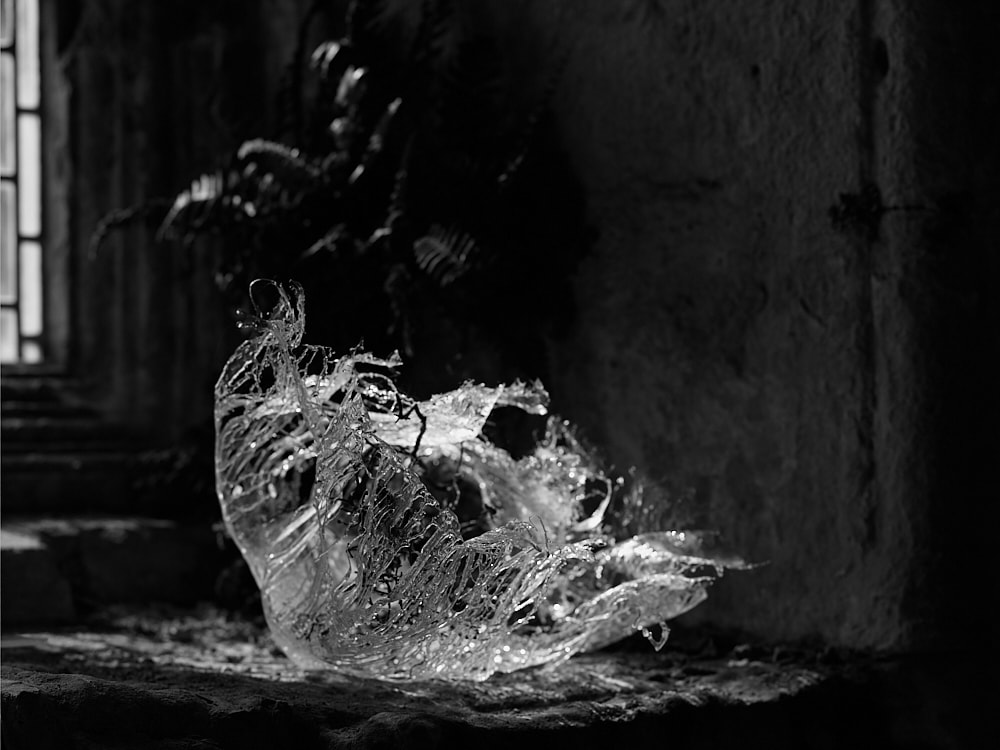
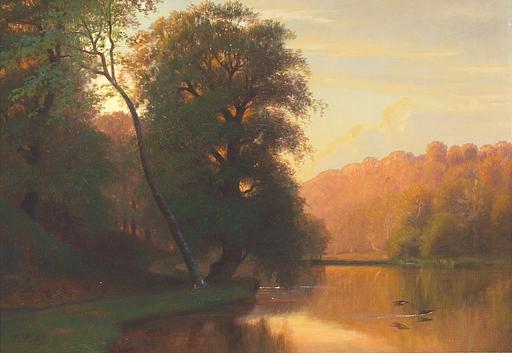
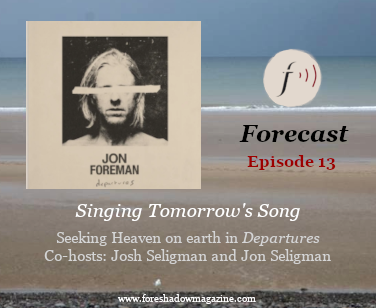
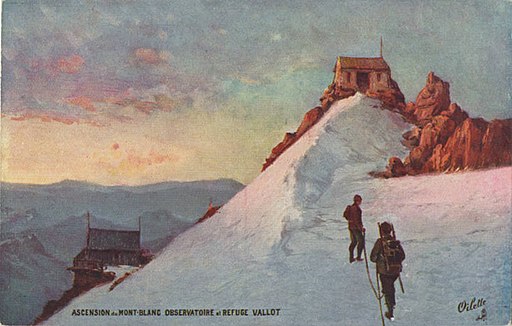
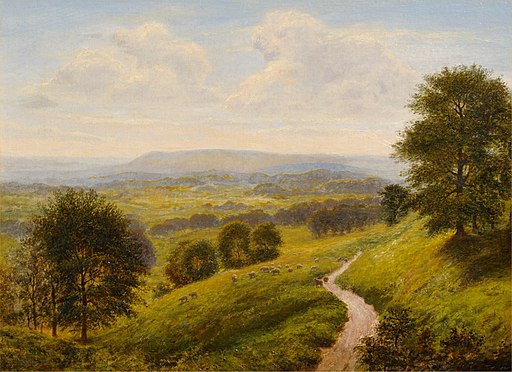
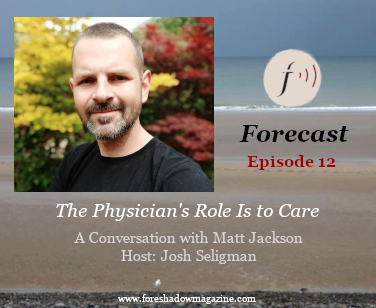
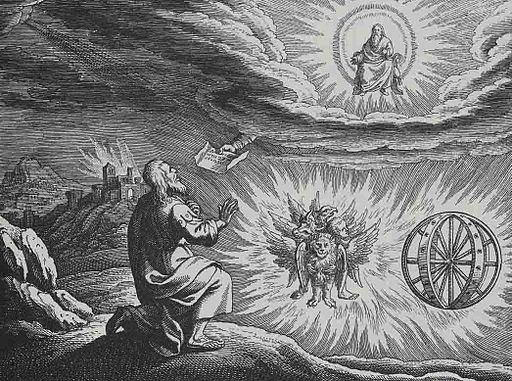
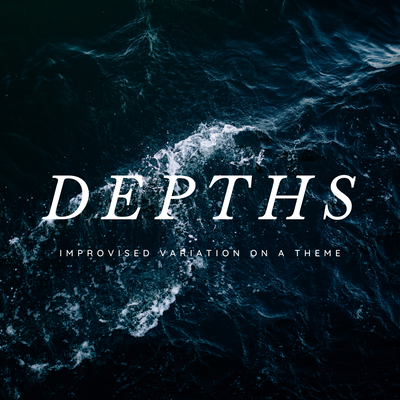
 RSS Feed
RSS Feed
